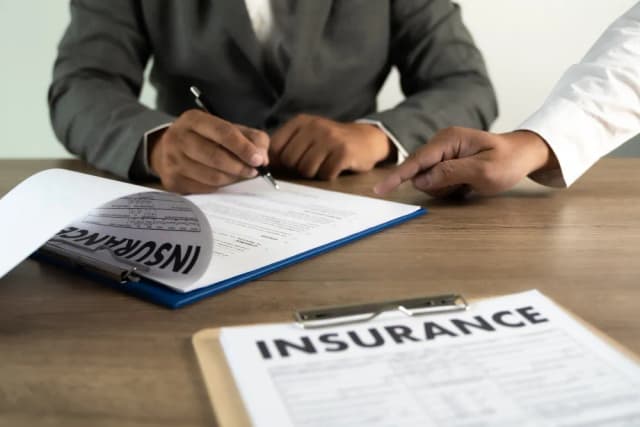Getting Medications After a Car Accident: What You Need to Know

Car accidents are unexpected events that can result in injuries, pain, and emotional stress. Whether it's a minor fender-bender or a more serious collision, one of the most common outcomes is the need for medications to help manage pain, reduce inflammation, and support the healing process. Understanding the types of medications you might be prescribed, how to manage them, and how to ensure a smooth recovery can significantly impact your journey to healing.
At Farmington Drugs, we are here to guide you through the process of getting and managing your medications after a car accident. This blog post will explain the types of medications commonly prescribed after an accident, their purpose, and how Farmington Drugs can help you stay on track with your treatment plan.
Why Medications Are Important After a Car Accident
In the aftermath of a car accident, the body may experience a range of physical injuries, from soft tissue damage (such as bruises and sprains) to more severe injuries like broken bones or whiplash. Medications help manage the pain, inflammation, and other symptoms that arise from these injuries. The key reasons why medications are important after a car accident include:
1. Pain Management
Pain is often one of the first and most immediate challenges after an accident. Whether it’s a sharp, sudden pain from an injury or chronic pain from muscle strain, pain relief medications are essential for making daily activities more manageable and improving overall comfort.
2. Reducing Inflammation
Car accidents often cause swelling and inflammation in the affected areas. Anti-inflammatory medications can help reduce swelling, speed up recovery, and relieve discomfort.
3. Preventing Infection
If the car accident involves any cuts, scrapes, or open wounds, antibiotics may be prescribed to prevent infection and promote healing.
4. Supporting Recovery
For more severe injuries, such as fractures or internal injuries, additional medications may be prescribed to support the body’s healing process, including muscle relaxants or prescription-strength pain relievers.
Types of Medications Prescribed After a Car Accident
After a car accident, your doctor will assess your injuries and prescribe medications based on the nature of your pain, inflammation, and recovery needs. Here are the types of medications that are commonly prescribed:
1. Pain Relievers
Pain relief is typically a top priority after an accident. Depending on the severity of your injury, your doctor may prescribe a variety of pain medications, including:
-
Over-the-counter (OTC) pain relievers: Medications like acetaminophen or ibuprofen are often used for mild to moderate pain.
-
Prescription painkillers: For more severe pain, stronger medications such as opioids or opioid alternatives may be prescribed. These medications are generally used for short-term pain relief, as they can carry risks of dependence and side effects.
2. Anti-inflammatory Medications
Swelling is a common response to injury, and anti-inflammatory medications (such as NSAIDs, which include ibuprofen and naproxen) can help reduce swelling, pain, and fever. These medications are commonly used after accidents to manage inflammation from soft tissue injuries.
3. Muscle Relaxants
If the accident has caused muscle spasms or tension, a doctor may prescribe muscle relaxants to ease discomfort. These medications work by relaxing the muscles, making it easier to move and recover from strains or sprains.
4. Antibiotics
In the event of cuts or open wounds from the accident, antibiotics may be prescribed to prevent infection. These medications are typically used after injuries where the skin is broken, helping to prevent bacteria from entering the body.
5. Blood Thinners
If you have sustained internal injuries, especially from blunt force trauma, blood thinners may be prescribed to prevent blood clots from forming. These medications are essential in managing the risk of deep vein thrombosis (DVT) or pulmonary embolism (PE), which can develop after trauma or immobility.
6. Topical Creams and Ointments
For minor cuts and abrasions, topical treatments like antiseptic ointments, steroid creams, or healing balms may be recommended to speed up healing and reduce irritation.
How to Properly Manage Your Medications After a Car Accident
After a car accident, it’s important to follow your doctor’s instructions carefully when it comes to taking medications. Proper medication management is essential to prevent complications and ensure a smooth recovery. Here are some tips to help you manage your prescriptions:
1. Follow Your Doctor’s Instructions
Always take your medications as prescribed, including the right dosage and frequency. This helps ensure that the medications are effective and minimizes the risk of side effects. If you have any questions about how to take your medications or if you experience any unusual side effects, don’t hesitate to contact your healthcare provider or pharmacist.
2. Set Reminders
If you have a complex medication schedule, setting reminders can help ensure you never miss a dose. Use a medication tracker, a phone alarm, or a pill organizer to stay on top of your medications.
3. Monitor for Side Effects
Some medications, especially painkillers and muscle relaxants, can cause drowsiness, nausea, or dizziness. If you experience any troubling side effects, contact your healthcare provider immediately. It’s also important to avoid alcohol or other substances that may interact with your medications.
4. Keep Your Pharmacist Informed
At Farmington Drugs, our pharmacists are here to help you with any questions about your medications, including potential interactions or side effects. If you’re taking multiple medications, make sure to inform your pharmacist so they can check for drug interactions that may affect your recovery.
5. Do Not Stop Medications Suddenly
If you’re prescribed medications like opioids or muscle relaxants, it’s important to follow the tapering instructions given by your healthcare provider. Suddenly stopping certain medications can lead to withdrawal symptoms or rebound pain. Always follow your doctor’s plan for reducing or stopping your medications when the time comes.
6. Track Your Symptoms and Progress
Keeping a log of your symptoms and progress can help both you and your doctor assess how well the medications are working. If something feels off, don’t hesitate to report it so your treatment plan can be adjusted if necessary.
How Farmington Drugs Can Help
At Farmington Drugs, we understand how important it is to manage your medications carefully after a car accident. We offer personalized services to help you stay on track with your prescriptions and ensure that you have the support you need during your recovery. Here’s how we can help:
1. Prescription Assistance
We provide timely prescription refills and can work directly with your healthcare provider to ensure you have the medications you need to manage your recovery. If you’re having trouble accessing your medications, we offer home delivery services for added convenience.
2. Medication Counseling
Our pharmacists can provide medication counseling to explain how to take your medications, potential side effects, and how to handle any questions you may have. We’re committed to ensuring that you fully understand your treatment plan.
3. Medication Synchronization
If you’re taking multiple medications for your recovery, we offer medication synchronization services to align your refills. This service ensures that all your medications are refilled at the same time, making it easier to manage your prescriptions.
Final Thoughts
Dealing with the aftermath of a car accident can be challenging, but properly managing your medications can help speed up recovery and minimize discomfort. At Farmington Drugs, we are dedicated to supporting your recovery process by offering comprehensive pharmacy services, from prescription refills to medication counseling. If you’re recovering from an accident and need help managing your medications, contact Farmington Drugs today.





